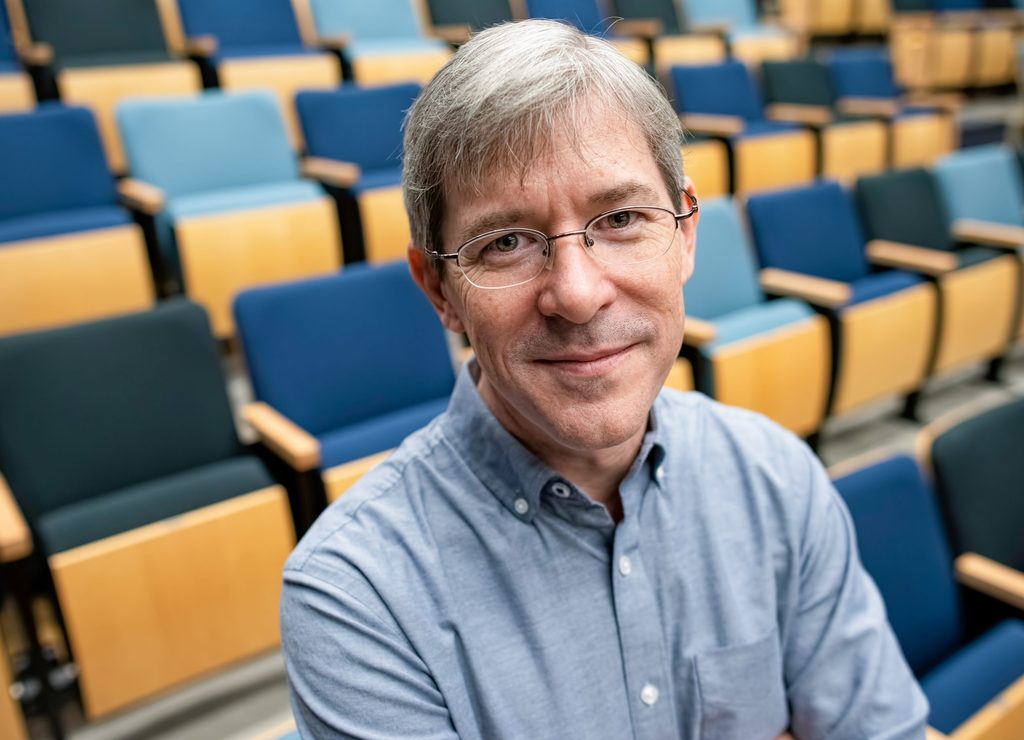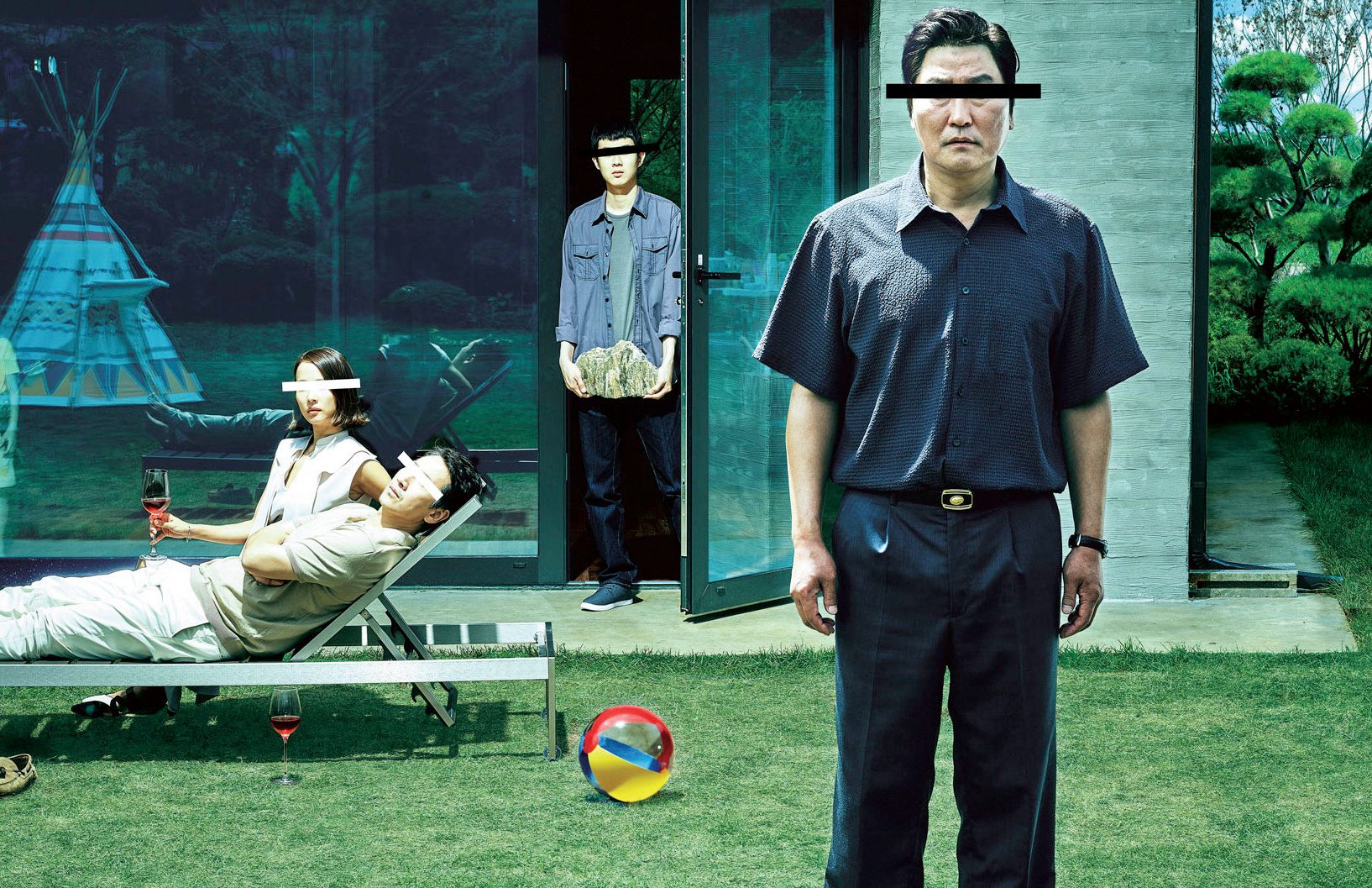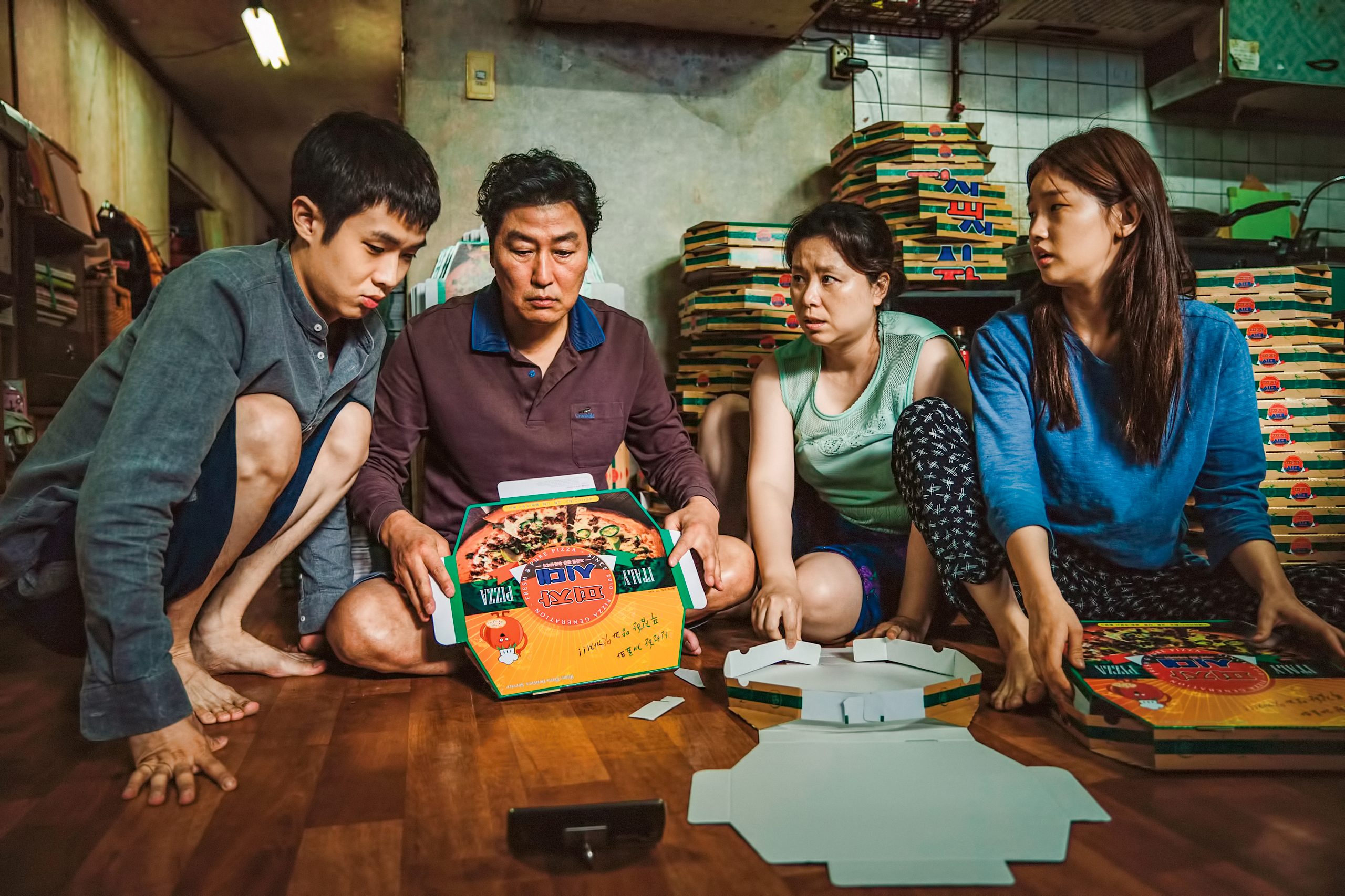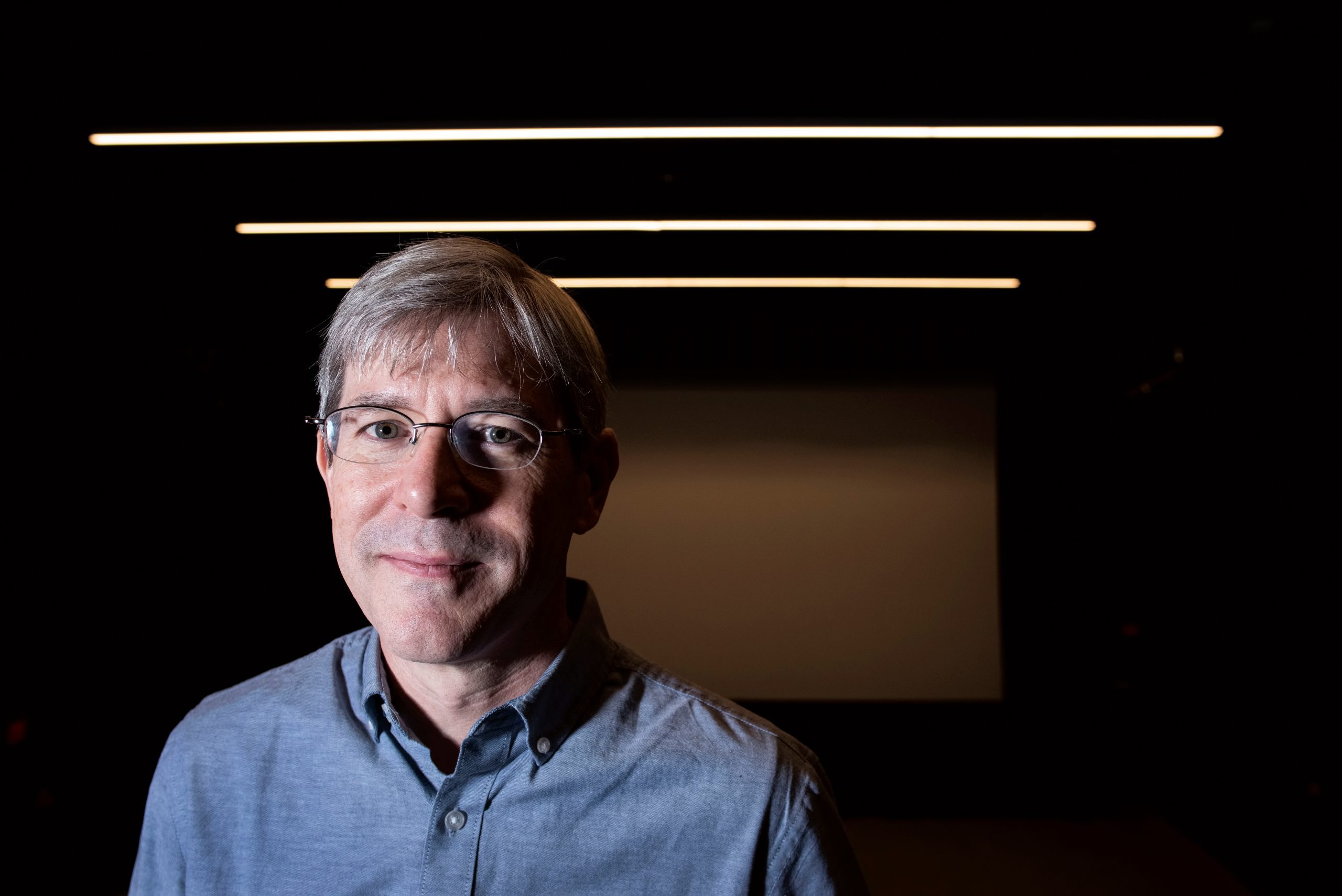Film scholar Darcy Paquet ’95 played a central role in Parasite’s award-winning year.

Of the many obstacles the South Korean film Parasite had to overcome on its way to a historic night at the 2020 Academy Awards, perhaps the most sizable could be measured with a ruler.
That’s because American moviegoers are notoriously subtitle-phobic. It’s a predilection that the film’s 50-year-old writer, director, and producer, Bong Joon-ho—who broke through in the United States with his monster movie, The Host—understands, but “once you overcome the one-inch-tall barrier of subtitles, you will be introduced to so many more amazing films,” he told peers at the 2020 Golden Globes.
More than a few gushing critics used variations of the word amazing to describe Parasite. The adjective also applies to the confluence of factors that led to international box office records for a South Korean film and earned Bong four Oscars, including Best Director, Best Original Screenplay, and the first-ever Best Picture award for a non-English-language film.

The film’s class-conscious commentary is timely and universal; the unforgettable central characters (two families from opposite sides of the tracks) are inimitable; and the storytelling—a mix of suspense and ink-black comedy—is as accessible as it is unorthodox. And, perhaps most importantly to many U.S. viewers, the screenplay’s wit and rhythms were translated expertly into English by Bong and Darcy Paquet ’95, an authority in Korean cinema and a seasoned subtitler.

Talking with Paquet, one gets the sense that a truly effective translation has a koan-like quality: it’s invisible, yet its impact is inescapable. Paquet and Bong’s attention to the potential of language and the colloquial vagaries add richness and relevance that many foreign language films fail to achieve outside their countries of origin.
“I tried as much as possible not to dumb down the subtitles for international audiences and to maintain the complexity of the original dialogue,” says Paquet, who visited Carleton this past winter to host a talk at Weitz. “That being said, in terms of actual word choice I tried to make the meaning as immediate and clear as possible, so that viewers could process the words quickly.”

Paquet moved to Korea in 1997 after two years of graduate school at Indiana University. Friends at IU, where he earned a master’s degree in applied linguistics (he majored in Russian at Carleton), introduced him to Korean film and culture and so—after becoming certified to teach English—he left for what he thought would be a short stint abroad. “Twenty-three years later, I’m still there,” the bookish, amiable Paquet says with a quiet chuckle.
Unable to find a comprehensive source of information on the country’s endemic cinema, Paquet launched the website Koreanfilm.org, which soon drew a passionate following and opened opportunities for him as a film journalist, festival consultant, and critic. “This was a time, the late ’90s, when Korean cinema was in the process of transforming, but the rest of the world hadn’t really noticed yet,” he says.

Over the years, Paquet continued his cinematic scholarship, publishing a critical history, New Korean Cinema: Breaking the Waves, in 2010 and developed working relationships in the industry with sought-after directors like Bong and Park Chan-wook, for whom he translated The Handmaiden.
While subtitling a movie may appear to outsiders as little more than converting lines in one language to another, Paquet has a reputation for subtlety, which exhibits itself in alternative words, phrases, and even allusions that are not necessarily in the original script.
“South Korean viewers will catch a reference immediately just from the particular intonation and delivery of the actor,” Paquet explains, “but there can be moments of potential confusion for international audiences. [In one scene] we solved this by modifying another character’s reaction. So instead of translating it directly as ‘You’re the best at North Korean gags,’ I wrote, ‘No one can imitate North Korean news anchors like you.’ It’s a bit awkward but, in this case, it seemed like we should state what was going on explicitly.”
Part of Parasite’s appeal is the way it interweaves and juxtaposes humor with tragedy and violence, a high-wire act that, if it is handled clumsily, can literally get lost in translation. “Working with humor is challenging but also kind of exciting,” Paquet says. “Something I focus on is to make sure the subtitles match the emotional tone of each moment. A lot of emotion is communicated nonverbally to the audience through the actor’s tone of voice, facial expressions, and actions, and if the subtitles are even slightly off in an emotional sense, the audience feels something is wrong.”
A Massachusetts native, Paquet teaches at Korea’s Busan Asian Film School and usually comes back to the United States during winter breaks with his wife, Hyeon-Sook, and two teenage boys. Along with teaching film and completing subtitling projects, he is currently writing a book about subtitling for a Korean publisher. “It’ll be a mix of personal experiences working with directors and doing subtitling along with my thoughts about the process,” he says.
Naturally, Paquet made a point to watch this year’s Oscars on TV. “It was all pretty stunning. To hear the reaction of the crowd when Parasite won Best Picture was amazing,” he says. “I’ve been following and writing about Korean cinema for over 20 years, and I never imagined that a Korean film would connect with American audiences in the way that Parasite has.”
While a lot of American viewers might still say they don’t like reading subtitles because of the effort involved, Paquet hopes that Bong’s success will pave the way for foreign film to be more prevalent in U.S. theaters.
“It’s more of an image problem,” says Paquet, who points out that most of us are happily reading text all day long on our smartphones. “When people hear ‘subtitled film,’ they imagine something difficult and unappealing. I think the fact that Parasite is so funny and exciting and moving will help to break that negative stereotype.”
